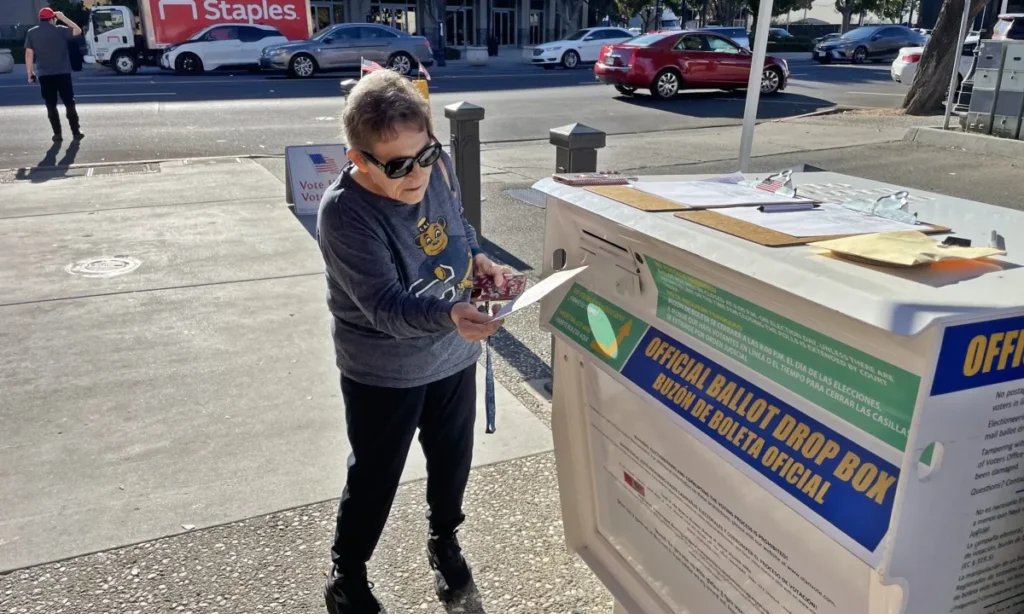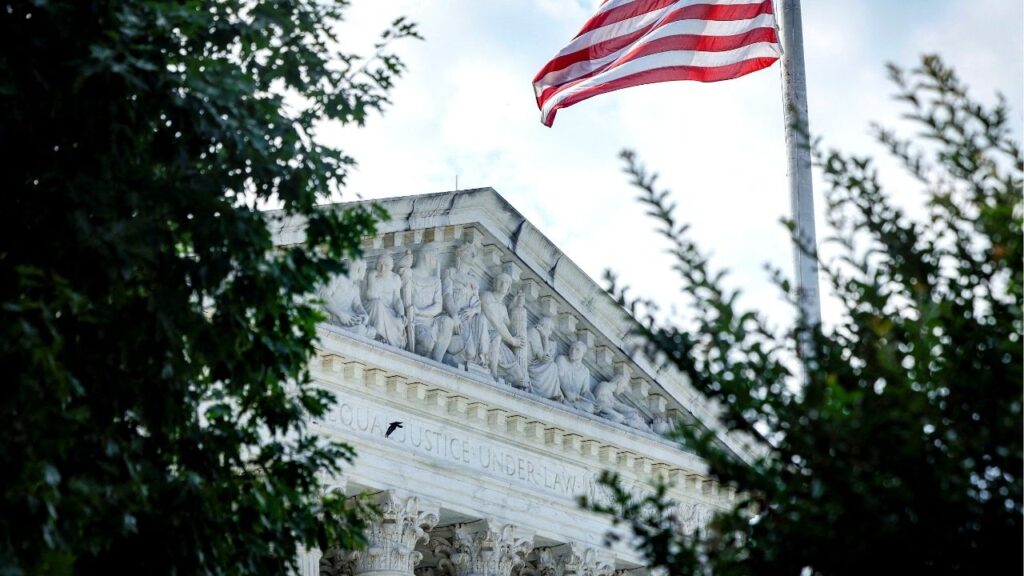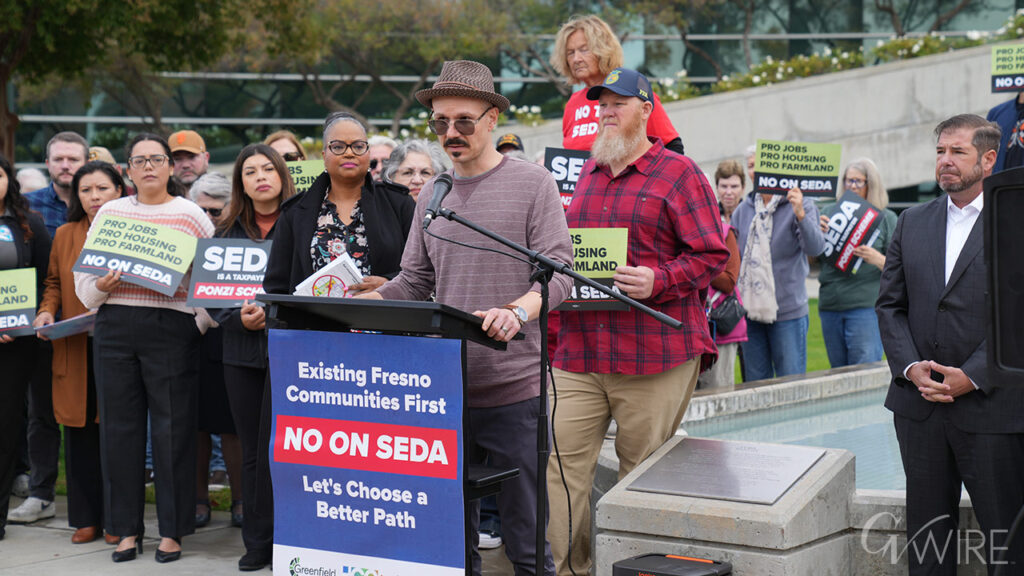
- California bill would let tenants delay eviction if federal Social Security benefit disruptions cause them to miss rent.
- Newsom has until Oct. 13 to sign Assembly Bill 246 as Trump administration threatens more federal workforce cuts.
- Supporters say measure prevents homelessness; landlords and business groups warn delays hurt property owners’ ability to pay mortgages.
Share
|
Getting your Trinity Audio player ready...
|
This story was originally published by CalMatters. Sign up for their newsletters.
With the Trump administration again threatening mass firings of federal employees, Gov. Gavin Newsom must soon decide whether California landlords must accept Social Security benefit delays as an excuse not to evict tenants who fall behind on rent.

Ryan Sabalow
CalMatters
Earlier this month, the California Legislature passed Culver City Democratic Assemblymember Isaac Bryan’s Assembly Bill 246. The measure would give tenants legal protections in eviction proceedings if their Social Security benefits are “terminated, delayed, or reduced due to no fault of the tenant” and the federal problems caused them to miss rent.
Bryan introduced the bill this spring in the middle of the uproar over President Donald Trump’s Department of Government Efficiency campaign to slash the federal workforce and fears that Republicans would cut Social Security payments, which they ultimately didn’t do.
“It’s an assurance that if President Trump does come for our aunties and our granddads and our disabled brothers and sisters that California will be there to protect them and won’t let them slide into homelessness because their Social Security was cut off,” Bryan told the Senate Judiciary Committee in July.
Newsom hasn’t indicated whether he’ll sign the measure. Newsom spokesperson Tara Gallegos declined to comment. He has until Oct. 13 to make a decision.
Recent developments in Washington, D.C. could put fresh pressure on Newsom to sign the legislation. Trump’s top federal budget official, Russ Vought, sent a memo last week to the heads of federal agencies telling them to begin more mass firings of federal workers if the government shuts down because Congress can’t pass a spending bill. It’s not clear what Vought’s proposed cuts would mean for Social Security Administration staffing.
Democratic and Republican members of Congress are at an impasse on the government funding bill. Democrats are demanding Republicans restore billions of dollars of federal health care funding Republicans cut earlier this year. The federal government could shut down on Wednesday if they don’t reach an agreement. Social Security payments haven’t been interrupted during previous government shutdowns.
But the administration’s threat of more staffing cuts could pose a separate threat.
This year, DOGE cut roughly 12% of the Social Security Administration workforce, contributing to backlogs at field offices around the country. Customer service problems at Social Security offices are still happening, The New York Times reported last week.
What the Bill Means for California Renters
Roughly 6.5 million Californians receive Social Security benefits. It’s not clear how many of California’s estimated 17 million renters rely on the payments for rent.
But older people eligible for Social Security benefits are an increasing share of renters. One rental market research company estimated that the number of seniors renting in the U.S. has climbed by 30% over the past decade, including a 31% increase in the Los Angeles area and a 24% spike in the San Francisco Bay Area.

The pending law would give renters in a court eviction proceeding the right to cite delays in Social Security payments to avoid being kicked out of their home or apartment.
If a renter could prove the federal government was at fault for delaying benefits they use to pay rent, the court would be required to pause the eviction for up to six months. Within 14 days of the Social Security benefits being restored, a tenant would have to pay all past due rent or come up with “a mutually agreed upon payment plan” with their landlord.
The pending law would be in effect until Jan. 20, 2029, the day Trump leaves office from his second term.
Supporters include organizations advocating for the poor and disabled, such as California Council of the Blind and Disability Rights California.
“Due to recent actions by federal officials, including deep staffing cuts and office closures, any government program is at risk,” including Social Security, Eric Harris of Disability Rights California told lawmakers.
The influential labor organizations Service Employees International Union and the California Teachers Association, which donate heavily to legislators, also support the bill. The two labor groups and their affiliate unions have donated at least $27.9 million to legislators since 2015, according to CalMatters’ Digital Democracy database.
Opponents included the California apartment and building industries’ associations and the California Chamber of Commerce. In total, those three groups have donated at least $13.6 million to legislators since 2015, according to Digital Democracy.
Republicans and Some Democrats Oppose
Debra Carlton of the California Apartment Association told the Senate Judiciary Committee in July that any delays in rent prevent “senior mom and pop landlords” from paying their mortgages on time.
Sen. Roger Niello, a Republican representing the Sacramento suburbs, shared those worries with his colleagues on the Judiciary Committee. He also noted that “President Trump, both in his first term, as well as in this term, has repeatedly said he doesn’t want to touch Social Security.”
“If the president is good to his word, this bill will do absolutely nothing,” Bryan replied. “But … Californians can’t afford to trust this president. He’s shown several times early in this administration that he is not good to his word.”
No Republicans voted for the bill as it made its way through both chambers. Two Democrats also were apparently leery of it and voted against their colleague’s measure – a rarity in the California Legislature. As CalMatters has reported, Democrats vote “no” on average less than 1% of the time.
Norwalk Democratic Sen. Bob Archuleta cast the lone Democratic “no” vote for the measure on the Senate floor earlier this month. He didn’t explain his vote at the time, and a spokesperson didn’t return a message from CalMatters.
In the Assembly, Democratic member Anamarie Ávila Farías of Concord also joined Republicans in voting against it when it was before her chamber the final time.
In an interview last week, Ávila Farías, a former trustee of the California Housing Finance Agency, said was worried about the bill’s “unintended consequences.”
“There’s the flip side of individuals in the business of being property owners,” she said. “They also have struggles, too, when they are not able to meet their monthly obligations.”
—
This article was originally published on CalMatters and was republished under the Creative Commons Attribution-NonCommercial-NoDerivatives license.
RELATED TOPICS:
Categories




















